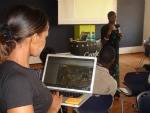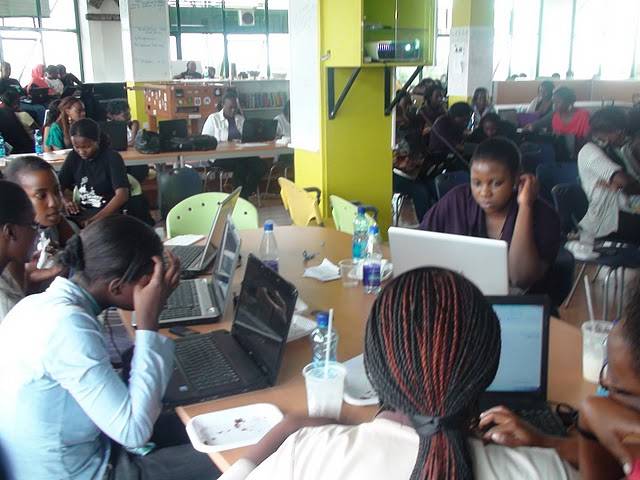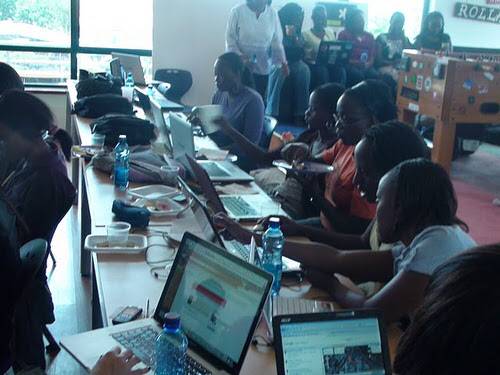If you like the idea of a quilting bee but prefer your bits electronic instead of fabric, you might be interested in a “ladies mapping party.” 70 Kenyan women were, and showed up to a Google-sponsored ladies mapping party at Nairobi’s iHub in February.

The women used Google Map Maker, and their specific local knowledge, to fill in schools, health centers, market centers, community development projects, restaurants and roads in a country too often neglected by cartographers.
Jacqueline Rajuai, Geo Specialist with Google, said the mix of women and the skills and knowledge they brought ranged widely.

“We had a mix of students, web developers, Non-profit CEOs, an advocate and even an editor. Their backgrounds were quite an interesting mix as we had Computer Science students and Geography students, participants with an environmental background but the common factor is that they had an interest to improve the Kenya maps. Either where they live, where they have projects or areas they frequent.”
This is hardly the first time Google has invited people to an intensive mapping party. Not unlike the independent Map Kibera experiment, Google invited the inhabitants of Korogocho to put themselves on the map. A Pakistan project brought people together last year to map changes after that country’s horrific mudslides.
Google is hardly a non-profit. All the information entered is available for further iterations of the company’s maps. However, Rajuai says this undertaking extends beyond making a profit.

“The bigger aim of all this is to make the world’s information accessible, and also to make sure that we get more African content, and to make the internet useful and relevant for Africans.”
Any readers involved in other crowdsourced mapping projects? Let us know in the comments.

















